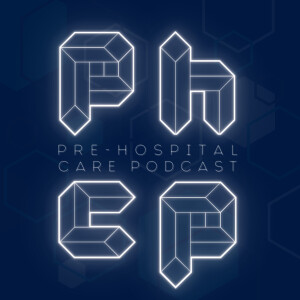
Reflections on Major Incident Management with Keir Rutherford and Alec Wilding
 2023-07-24
2023-07-24
In this conversation we will examine some of the lessons learnt from anecdotal experiences in major incidents, together with the reflections from previous recommendations in major incident enquiries such as the Manchester bombings. We will examine the differentiation of terrorist attacks at point of call from an otherwise normal RTC or ‘typical’ incident. We also look at the initial approach to triage, who and how this should be done as well as the integration and relationship of the Ten Second Triage (TST) algorithm, the Major Incident Triage Tool (MITT) and levels of enhanced care at the scene. Also, the concept of casualty clearing and when and how this should be performed. We also examine the level/ceiling of intervention that is beneficial from the empirical research in such events and how this should be approached. We also examine inter-disciplinary working with other services such as police responders and fire brigade.
Keir Rutherford is an Advanced Paramedic Practitioner in Critical Care and also a flight paramedic with London’s Air Ambulance. Alec is also an Advanced Paramedic Practitioner in Critical Care and the Emergency Planning Resilience and Response (EPRR) lead for Festival Medical Services, who are a charity providing event medical cover including at Glastonbury and also a Specialist Paramedic for Hampshire Isle of Wight Air Ambulance.
To read more on some of the information referred to in the Manchester Bombing inquiry please see here: https://manchesterarenainquiry.org.uk/
This is part 1 of a 2 part conversation as we felt there was too much to include in just one episode.
More Episodes
Create your
podcast in
minutes
- Full-featured podcast site
- Unlimited storage and bandwidth
- Comprehensive podcast stats
- Distribute to Apple Podcasts, Spotify, and more
- Make money with your podcast
It is Free
- Privacy Policy
- Cookie Policy
- Terms of Use
- Consent Preferences
- Copyright © 2015-2024 Podbean.com





